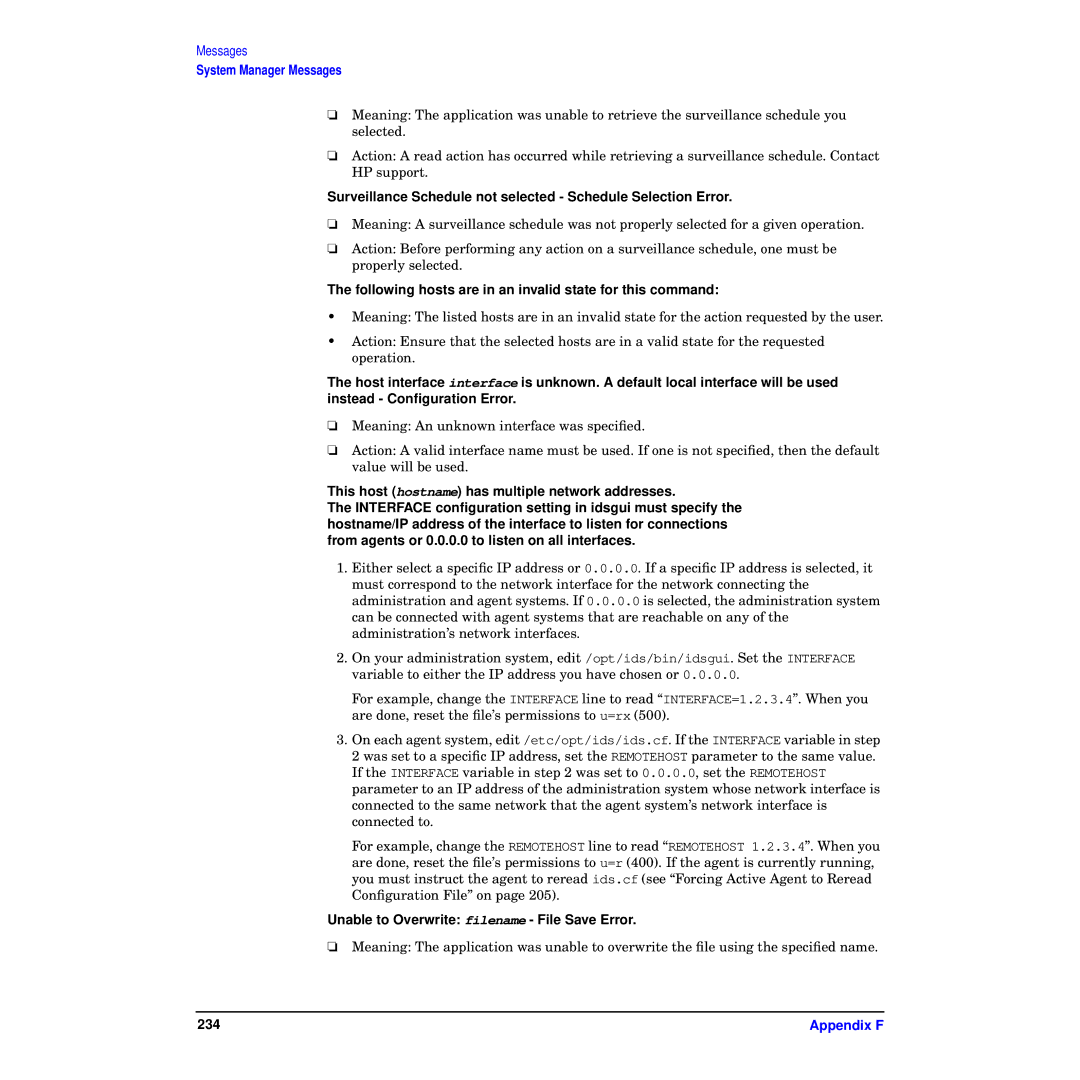Messages
System Manager Messages
❏Meaning: The application was unable to retrieve the surveillance schedule you selected.
❏Action: A read action has occurred while retrieving a surveillance schedule. Contact HP support.
Surveillance Schedule not selected - Schedule Selection Error.
❏Meaning: A surveillance schedule was not properly selected for a given operation.
❏Action: Before performing any action on a surveillance schedule, one must be properly selected.
The following hosts are in an invalid state for this command:
•Meaning: The listed hosts are in an invalid state for the action requested by the user.
•Action: Ensure that the selected hosts are in a valid state for the requested operation.
The host interface interface is unknown. A default local interface will be used instead - Configuration Error.
❏Meaning: An unknown interface was specified.
❏Action: A valid interface name must be used. If one is not specified, then the default value will be used.
This host (hostname) has multiple network addresses.
The INTERFACE configuration setting in idsgui must specify the hostname/IP address of the interface to listen for connections from agents or 0.0.0.0 to listen on all interfaces.
1.Either select a specific IP address or 0.0.0.0. If a specific IP address is selected, it must correspond to the network interface for the network connecting the administration and agent systems. If 0.0.0.0 is selected, the administration system can be connected with agent systems that are reachable on any of the administration’s network interfaces.
2.On your administration system, edit /opt/ids/bin/idsgui. Set the INTERFACE variable to either the IP address you have chosen or 0.0.0.0.
For example, change the INTERFACE line to read “INTERFACE=1.2.3.4”. When you are done, reset the file’s permissions to u=rx (500).
3.On each agent system, edit /etc/opt/ids/ids.cf. If the INTERFACE variable in step 2 was set to a specific IP address, set the REMOTEHOST parameter to the same value. If the INTERFACE variable in step 2 was set to 0.0.0.0, set the REMOTEHOST parameter to an IP address of the administration system whose network interface is connected to the same network that the agent system’s network interface is connected to.
For example, change the REMOTEHOST line to read “REMOTEHOST 1.2.3.4”. When you are done, reset the file’s permissions to u=r (400). If the agent is currently running, you must instruct the agent to reread ids.cf (see “Forcing Active Agent to Reread Configuration File” on page 205).
Unable to Overwrite: filename - File Save Error.
❏Meaning: The application was unable to overwrite the file using the specified name.
234 | Appendix F |
